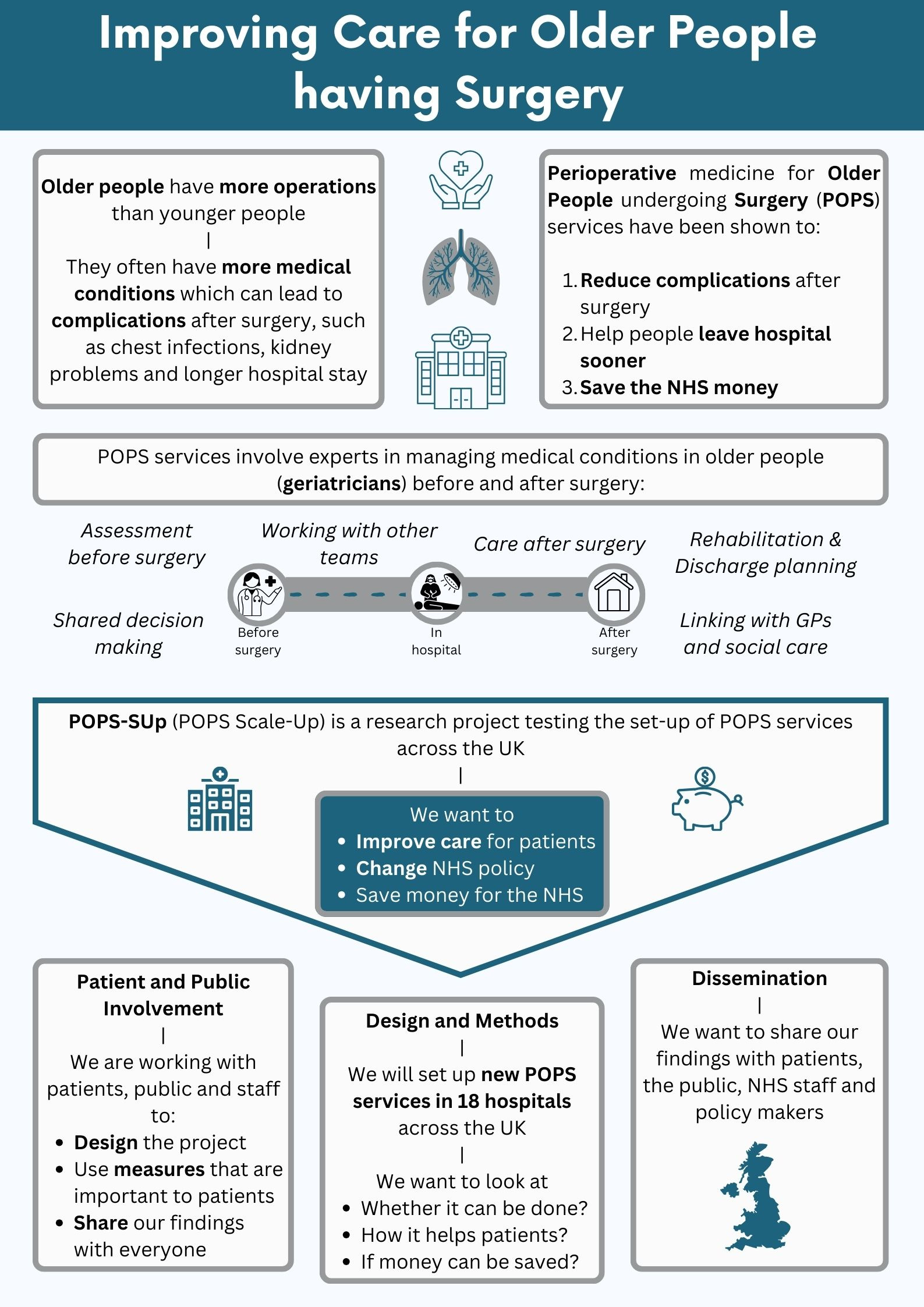POPS-SUp - Improving Outcomes for Older People having Surgery
Published in Healthcare & Nursing, Public Health, and Paediatrics, Reproductive Medicine & Geriatrics

We need a better model of care for older surgical patients
Older people have more operations than younger people, with this number increasing year on year. In 2015, 1.01 million people aged over 75 had surgery and this is estimated to increase to 1.49 million in 2030.
Older people often have more complications after surgery, such as chest infections, kidney problems, slow recovery and longer hospital stays. This is because they also may have other problems like heart disease or poor memory. In most hospitals, these complications are looked after by the surgical team. What we really need however, are experts in managing multiple medical conditions and frailty – geriatricians.
Introducing POPS
Perioperative medicine for Older People undergoing Surgery (POPS) services involve geriatricians before and after surgery. The team assesses and treats patients having planned surgery, as well as those who are admitted as an emergency to surgical services.
POPS was first set up at one NHS hospital, together with patients, carers, surgeons, anaesthetists, nurses, therapists and managers. The service has been shown to reduce complications after surgery, help people leave the hospital sooner and save the NHS money.
Some NHS hospitals have now set up POPS services, but some have not. This means that not all NHS patients can get this care. Setting up a POPS service can be difficult, but prior work has shown that this can be done successfully. This is what POPS-Sup hopes to achieve.
What is POPS-SUp?
POPS-SUp (POPS Scale-Up) is an NIHR funded study testing whether new POPS services can be set up in eighteen NHS hospitals across the UK.
It was designed with patients, public and staff to ensure the study focuses on what is important to patients and professionals.
It will be looking at:
- Whether POPS services can be implemented at scale?
- How effective POPS services are? For example, whether they result in faster recovery after surgery, and whether they improve shared decision making with patients
- Whether POPS services result in cost savings for the NHS?
POPS-SUp will use data from hospital records, as well as feedback sought from patients and staff. This will help determine the feasibility of implementing POPS services across the NHS, see whether patients benefit, and evaluate potential cost savings.
It is believed that this research will enhance patient care, influence NHS policies, and result in cost savings.
Want to hear more?
You can find more information about POPS-SUp on our website https://www.kcl.ac.uk/research/pops-sup and follow the progress on our X account @POPSSUp.

Infographic summarising POPS-SUp
Follow the Topic
-
ISRCTN: The UK’s Clinical Study Registry

A primary clinical trial registry recognised by WHO and ICMJE that accepts studies involving human subjects or populations with outcome measures assessing effects on human health and well-being, including studies in healthcare, social care, education, workplace safety and economic development.





Please sign in or register for FREE
If you are a registered user on Research Communities by Springer Nature, please sign in